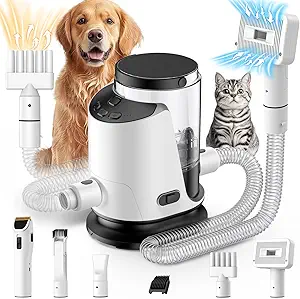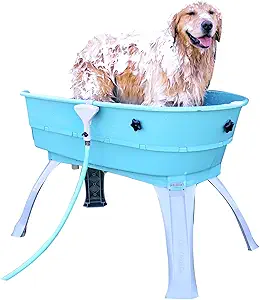All You Need to Know About Labrador Retriever Care
This post may contain affiliate links, which means I’ll receive a commission if you purchase through my link, at NO EXTRA COST TO YOU

Labrador Retrievers are among the most beloved dog breeds worldwide. Known for their friendly demeanor and playful spirit, these dogs make excellent companions for families and individuals alike. However, owning a Labrador Retriever involves understanding their unique care requirements. In this guide, you’ll discover everything you need to know about Labrador Retriever care, from grooming and training to nutrition and health.
Understanding Your Labrador Retriever’s Needs
Personality and Temperament
Before diving into care specifics, let’s discuss the Labrador Retriever’s personality. They are known for being sociable, outgoing, and eager to please. This friendly nature makes them highly trainable, but it also means they thrive on companionship. Thus, ensuring you dedicate quality time to your Labrador is crucial. They may become anxious or destructive if left alone for extended periods.
Exercise Requirements
Labradors are high-energy dogs that require regular exercise. They need at least 60 minutes of physical activity each day. Engaging in activities like fetch, swimming, or long walks keeps them physically fit and mentally stimulated. Additionally, interactive playtime strengthens your bond with your dog. When they have ample opportunities to expend their energy, you can prevent behavioral issues stemming from boredom.
Nutrition: Feeding Your Labrador
Choosing the Right Diet
Proper nutrition plays a vital role in your Labrador’s overall health. Start by selecting a high-quality dog food specifically formulated for large breeds. Look for products that list real meat as the primary ingredient. Many experts recommend avoiding foods with excessive fillers like corn and soy.
Portion Control
Since Labradors are prone to obesity, it’s crucial to monitor their portion sizes. You should follow the feeding guidelines on your dog food packaging, adjusting based on your dog’s age, weight, and activity level. Moreover, consider dividing their daily food intake into two or three meals instead of one to aid digestion and prevent bloating.
Healthy Treats
In addition to their regular diet, you can offer healthy treats in moderation. Fresh fruits and vegetables like carrots, blueberries, and green beans serve as nutritious options. However, always check with your veterinarian before introducing new foods, as some may be harmful to dogs.
Grooming: Keeping Your Labrador Looking Good
Coat Care
Labrador Retrievers have a short, dense double coat that sheds year-round, with increased shedding during seasonal changes. Regular grooming helps manage this shedding and keeps their coat healthy. Aim to brush your Labrador at least once a week, using a rubber grooming brush or a slicker brush. This routine not only reduces loose hair but also helps distribute natural oils throughout their coat.
Bathing
You should bathe your Labrador every 6 to 8 weeks or as needed, especially if they roll in dirt or have a strong doggy odor. Use a mild, dog-specific shampoo to avoid irritating their skin. Remember to rinse thoroughly to remove all shampoo residue, as leftover product can cause skin issues.
Nail Trimming and Ear Cleaning
Regular nail trimming is essential to keep your Labrador’s paws healthy. Aim to trim their nails every 3 to 4 weeks or as needed. Long nails can lead to discomfort and affect their walking. Furthermore, clean your Labrador’s ears regularly, especially if they swim often. Use a veterinarian-recommended ear cleaner and cotton balls to remove debris and prevent infections.
Training: Essential Commands and Socialization
Basic Training
Training your Labrador Retriever should start early, ideally when they are puppies. Focus on basic commands like “sit,” “stay,” “come,” and “down.” Positive reinforcement works wonders for this breed, as they respond well to praise and treats. Consistency is key, so make sure to practice commands regularly.
Socialization
Socializing your Labrador is equally important. Expose them to various environments, people, and other animals from a young age. This exposure helps them develop confidence and reduces the likelihood of fear-based aggression. Consider enrolling your dog in obedience classes or puppy socialization groups for structured learning and interaction with other dogs.
Advanced Training
As your Labrador matures, consider advanced training options. Activities such as agility training or scent work can provide excellent mental stimulation. Engaging in these activities not only keeps your dog physically active but also strengthens your bond through teamwork and trust.
Health Care: Regular Vet Visits and Preventive Measures
Routine Veterinary Care
Routine veterinary care is crucial for maintaining your Labrador’s health. Schedule annual check-ups for vaccinations, dental cleanings, and overall health assessments. During these visits, your veterinarian can identify any potential health issues early on.
Vaccinations and Preventive Medications
Ensure your Labrador receives all recommended vaccinations. Discuss with your veterinarian about flea, tick, and heartworm preventive medications, as these can help protect your dog from various diseases. Keeping your dog up-to-date on preventive measures significantly contributes to their well-being.
Watch for Common Health Issues
Labrador Retrievers are prone to specific health issues, including hip dysplasia, elbow dysplasia, and obesity. Therefore, it’s essential to monitor your dog’s weight and activity levels closely. If you notice any changes in behavior, appetite, or mobility, consult your veterinarian promptly.
Conclusion: Enjoying Life with Your Labrador
Caring for a Labrador Retriever involves understanding their unique needs and characteristics. By focusing on their nutrition, exercise, grooming, training, and health care, you can ensure your Labrador thrives in a loving environment. These dogs bring immense joy and companionship, so investing time and effort into their care pays off.
Ultimately, a well-cared-for Labrador will reward you with loyalty, love, and countless cherished memories. With proper care and attention, your Labrador Retriever can lead a happy, healthy life by your side for many years.








